About

Through Karate, our students master martial arts techniques while gaining leadership skills and boosting self-esteem. The skills learned at Ken Ren Kan Karate carry over into every part of their lives, improving confidence, discipline and grit.
Our Karate club welcomes boys and girls from grade 6 (ages 10-11) onward, as well as teens and adults of all ages. We’re proud to offer a flexible training environment suitable for those with physical conditions or special considerations, ensuring that every individual can progress at their own pace with the necessary adjustments.
We also encourage families to train together. While each family member’s Karate journey is unique, the experience of practicing this powerful discipline as a family creates lasting bonds and shared growth.
If you’re ready to challenge yourself, build strength, and grow with us, we’d love to welcome you. Contact us today to schedule your free trial class and discover what Karate can do for you!
Email: harveybaldwyn@outlook.com
Call: 0455 557 134
Class Details
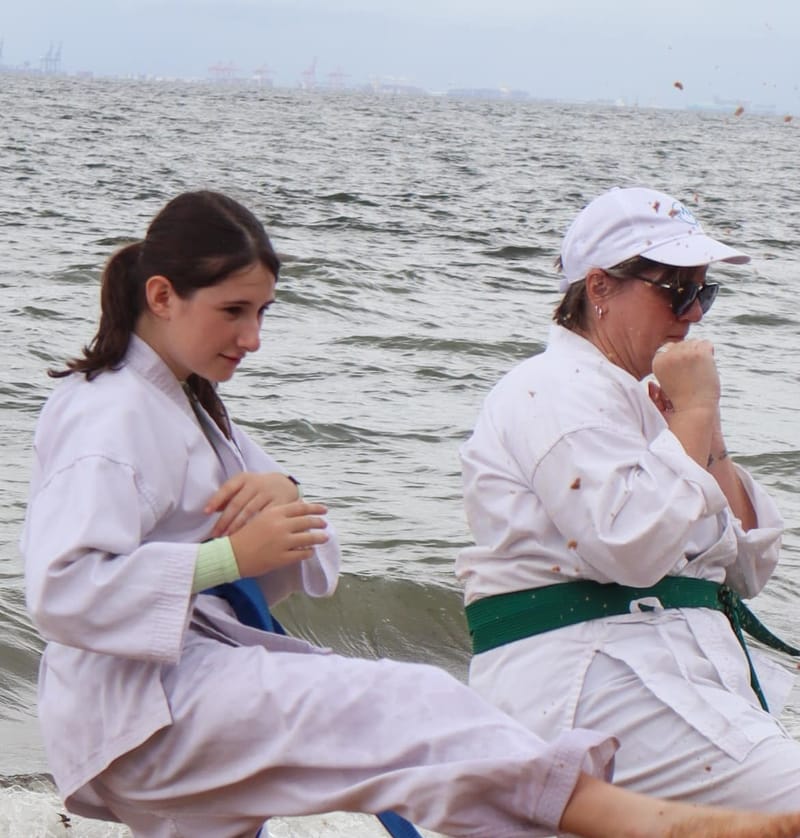
Class times
During School Term Class times are as follows: Monday 5:30pm - 7:30pm Thursday 5:30pm - 7:30pm Saturday 9:30am - 11am Evening classes allow staggered start and finish times at 30 minute intervals when we stop for a short drink break. Students are encouraged to attend Saturday classes to extend their training opportunities. During December and January, we run several Saturday morning beach classes in lieu of our Saturday class in the dojo. We suggest students wear swimwear under their karate gi for beach training as we do get wet! A swim is always welcome afterward as well.
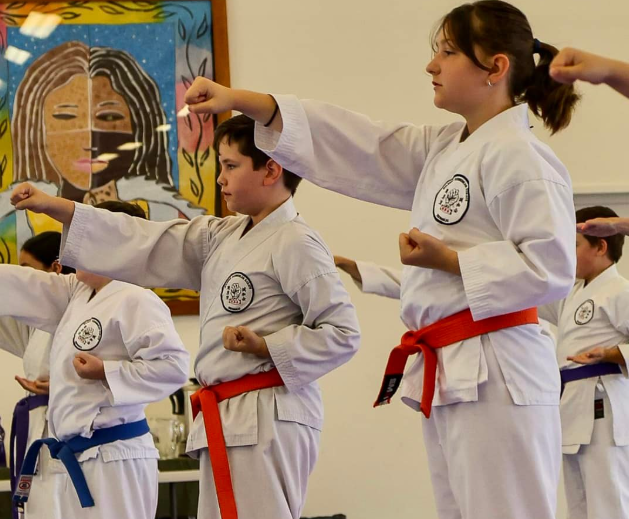
Beginners (Up to 7th Kyu)
For beginners, we recommend training on Mondays and Thursdays from 5:30pm until 6:30pm where possible. We find an hour is enough when you are just starting out your karate journey. Saturday 9.30am - 11.00am is suitable for all levels. During school term breaks, classes are run less often and are advertised on our Facebook page https://www.facebook.com/Kenrenkan/ Private lessons are available at a time and place that suits you. Contact Harvey Baldwyn Sensei 0455 557 134 for further details of classes.
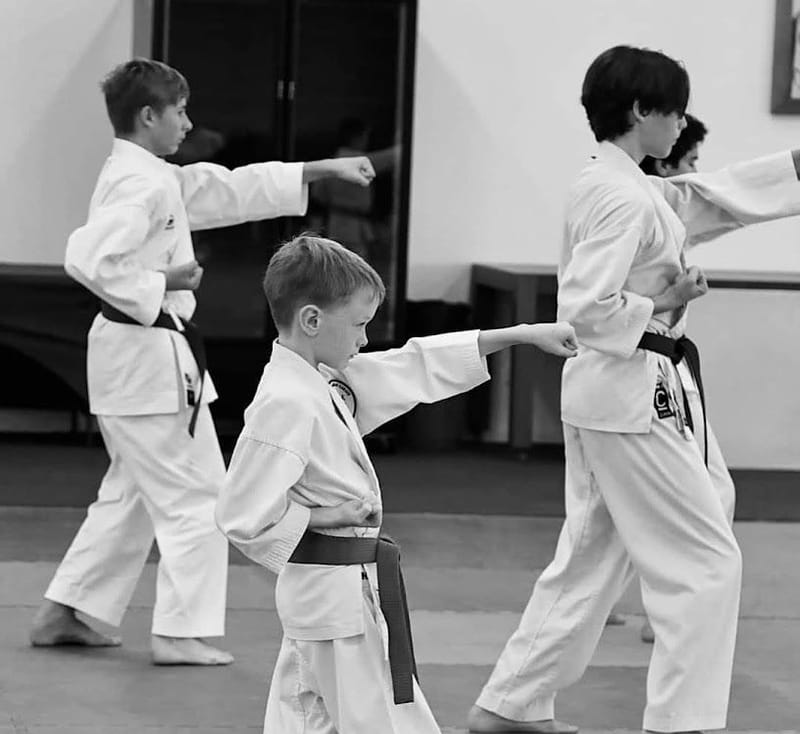
Intermediate (6th kyu - 3rd kyu)
We encourage intermediate students to attend from 5.30pm - 7.00pm Mondays and Thursdays, and the Saturday class. Some students may also enjoy the challenge of staying for the final 30 minutes of the evening classes. During Term breaks classes run at a lesser frequency. These are advertised on Facebook. Private lessons are available at a time and place that suits you. Contact Harvey Baldwyn Sensei 0455 557 134 for further details of classes.
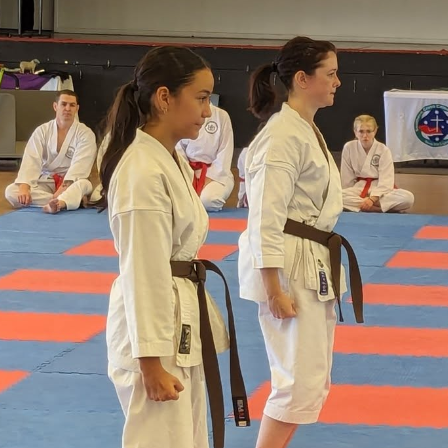
Seniors (3rd Kyu and above)
All classes and all times are suitable for this grade level. The last 30 minutes of all classes will generally have a higher difficulty level, so we encourage all brown and black belts to attend. However, skilled lower grades may be invited to attempt these time slots. Contact Harvey Baldwyn Sensei 0455 557 134

Gradings
Gradings are held at the Dojo two to three times per year. Students are invited by their Sensei in the weeks prior to the grading if the Sensei feel you are ready for your next belt. Students may choose to ask, "what do I need to work on to obtain my next grade please, Sensei?" rather than, "when can I grade?". While club black belts are awarded on limited occasions, most black belt gradings are Japanese gradings and are conducted under the scrutiny of Shihan (Senior Instructor) and Japanese Masters in Brisbane, Wollongong and Japan at least annually.
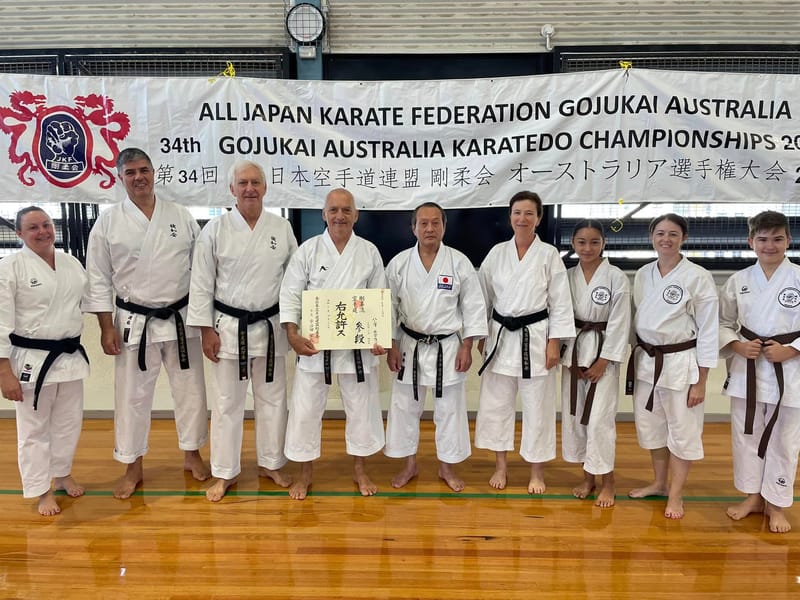
Seminars
Seminars to improve techniques at higher levels are run throughout the year. Our senior grades also have the opportunity to train with instructors across Brisbane under Rod Martin Shihan (Senior Instructor) once per month. When students have been training for a sufficient time, they are also eligible to train at seminars under Japanese Masters both in Australia and Japan. We are able to provide advice regarding travel, accommodation etc when attending national and international events.
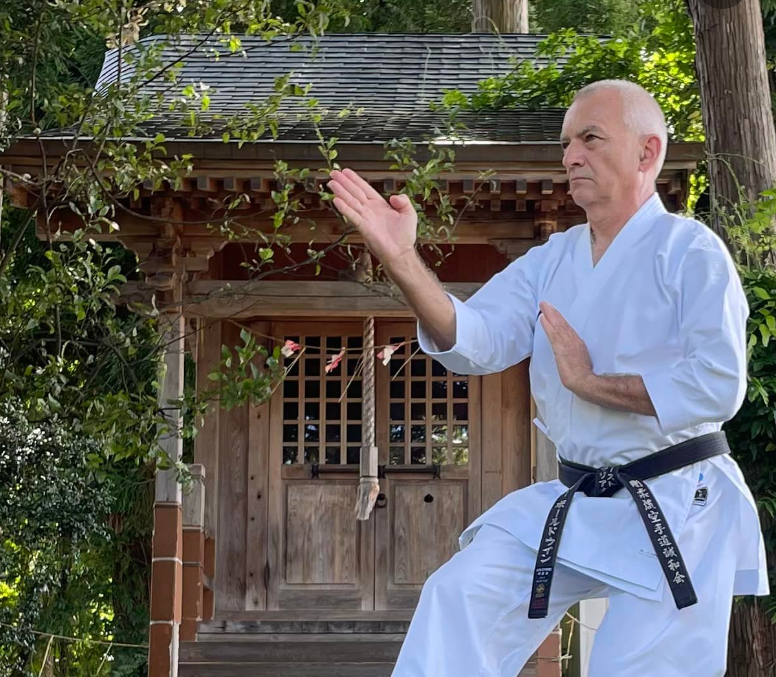
OTHER LOCATIONS
Kenrenkan is associated with other club dojos in other suburbs, states, and countries. If wishing to continue your training whilst travelling or relocating, please contact Harvey Sensei for details of classes at these locations.
Instructors
All Instructors are Japanese graded.
Harvey Baldwyn Sensei
Chief Instructor
Following an extensive period in sports karate competing in Australia, UK, and Japan achieving national titles Harvey has for many years pursued deeper understanding of traditional karate. Harvey trains under Japanese masters regularly travelling to Japan to gain understanding and knowledge from the arts roots. This includes the important development of students character.
Fiona O’Neill Sensei
Senior Instructor
Fiona started Karate as a teenager. She has trained with a wide range of elite instructors Internationally and within Australia, resulting in a highly refined technique and a deep knowledge of the art. Fiona takes special interest in development of girls and women through karate.
Warren Buzza Sensei
Instructor
Warren has over 20 years karate experience. Commencing his karate journey in Shito Ryu and following mixed styles, is now firmly based within Goju Ryu. Warren is a fantastic all round instructor with excellent kumite (fighting) skills.
Andy Stuttard Sensei
Instructor
Following several years karate training in the UK Andy continued training in Australia and has a solid understanding of the art which he enjoys sharing with like minded students following their own karate journeys. Andy has a wealth of self defence knowledge along with excellent kumite skills.
Melissa Bailey Sempai
Instructor
With a background in T'ai Chi Chuan and Muay Thai, Melissa brings a diverse approach to the dojo. Her Karate journey began when her son started training, teaching her the value of physical strength and mental resilience. Passionate about teaching, Melissa helps students build confidence, strength, and balance. She takes a special interest in supporting younger members, promoting fun, safe, and mindful training to help them achieve their goals and discover their own path.
Dojo Etiquette
When you enter the Dojo
- Remove your shoes and bow before entering the dojo as a sign of respect for our sacred space
- Greet your instructor when entering the dojo with a respectful “Hi Sensei,” acknowledging their guidance and leadership
- Assist with setup and packing away training mats and equipment—working together keeps the dojo organised and shows your contribution to teamwork
- Ensure you are dressed appropriately. Hair should be tied back, jewellery and watches removed, and karate gi presentable and clean
During Class
- Maintain focus throughout training. Refrain from chatting, fidgeting, or distracting other students. Your attention should be on your instructor and the techniques being taught
- When working with other students, respect your training partner during partner work. Strike or kick no harder than you would want to be struck or kicked. Never strike someone in the face—always prioritise their safety
- Clean up after yourself. Dispose of any rubbish, such as food wrappers, and keep the dojo environment clean and respectful
- Take care of your Karate belongings. Properly look after your gi, belt, and other equipment, as they represent your commitment and respect for Karate.
When leaving the Dojo
- Bow to and thank your Sensei with a respectful, "Arigato gozaimashita" pronounced (Ah-ree-gat-oh Go-za-ee-mushta) or "Thank you", acknowledging the efforts of their teaching
- Collect all your Karate belongings
- Bow upon leaving to show a sign of respect for the dojo
- Don't forget your shoes!
Terms used during class
Goju
- Hard (Go):
- Represents powerful, linear, and striking techniques.
- Includes blocks, punches, and kicks that use strength and force.
- Symbolises resilience and directness in approach.
- Soft (Ju):
- Focuses on circular, flexible, and redirection techniques.
- Includes movements like evasion, deflection, and controlling the opponent's energy.
- Symbolises adaptability and yielding to overcome force.
- The combination of hard and soft reflects balance and harmony, both physically and mentally.
- The style draws inspiration from nature, where strength (hard) and adaptability (soft) coexist.
- Practitioners learn to apply both principles, responding to situations with strength when necessary and gentleness when appropriate.
Students will train in hard and soft techniques, as well as specific breathing patterns that underpin this philosophy.
Dojo
Karate Gi
Obi - Belt
Interestingly, the coloured belts were introduced in the late 19th Century. Prior, in Japan, white belts were provided to new students. As they trained, their belt became darker and darker with each training session, slowly making its way to black. As time went on, the black fabric frayed off and turned back to white - showing the karateka's "shoshin" or "beginner's mind", where the master returns to the basics and sees endless opportunities for growth.
Bowing in
- Mokuso - pronounced "Mok-so" - close eyes, meditate
- Mokuso Yame - pronounced "Mok-so ya-meh" - open eyes, stop meditation
- Shomen ni rei - pronounced "Sho-men nee ray" - bow to front
- Sensei rei - pronounced "Sen-say ray" - bow to the Sensei
- Otagai ni rei - pronounced "Ot-eh-guy nee ray" - students and Sensei bow to each other.
- Onegaishimasu - pronounced "On-eh-guy-she-mus" - I humbly request your guidance or please teach me.
Bowing out
- Mokuso - pronounced "Mok-so" - close eyes, meditate
- Mokuso Yame - pronounced "Mok-so ya-meh" - open eyes, stop meditation
- Shomen ni rei - pronounced "Sho-men nee ray" - bow to front
- Sensei rei - pronounced "Sen-say ray" - bow to the Sensei
- Otagai ni rei - pronounced "Ot-eh-guy nee ray" - students and Sensei bow to each other.
- Arigato gozaimashita - pronounced "Ah-ree-gar-tow go-zai-ee-mush-ta" - Thank you very much.
Testimonials
Carolyn
MotherPat has grown as a person since joining just over a year ago and we look forward to the next year
Peter and Andy
Parents of Rivar and Eva. Peter also trainsWatching our two children, Rivar and Eva grow in life, with skills and capabilities learnt from Karate over the last 4 years has been a fantastic and rewarding experience for us as parents. Their characters have developed from shy to focused and humble individuals. The Instructors at classes take a personal interest in all students and their overall development, for us as parents it’s about the longer term journey knowing our children are becoming more confident, and socially resilient young adults. And yes Peter (Dad) trains with them!!
Paul Coleman Kyoshi (In memoriam: 6 January 1956 - 31 August 2023)
Oxford Karate Academy, 8th Dan All Japan Karate-Do Seiwakai, 7th Dan Japan Karate Federation GojukaiI’m extremely pleased to see Harvey now running another dojo in support of Seiwakai in Australia. I’ve been fortunate to share time with Harvey and Fiona whilst they’ve been in Japan. Lovely folks and totally committed to teaching Goju Karate. Best wishes for a successful dojo, Paul Coleman Kyoshi
Contact
Dojo (training hall) is located at Scarborough on the Redcliffe Peninsula. The venue is the Community Centre at the Southern Cross Catholic College.
- 259 Scarborough Road, Scarborough, Queensland, Australia
- Mailing Address: PO Box 69 Margate, QLD 4019
- +61-0455 557 134
- harveybaldwyn@outlook.com
- Mondays 5:30PM - 7:30PM Thursdays 5:30PM - 7:30PM Saturdays. 09:30PM - 11:00 See Class Details for individual class times. School Holidays have a revised timetable. See our Facebook page for details. Closed Public Holidays.


